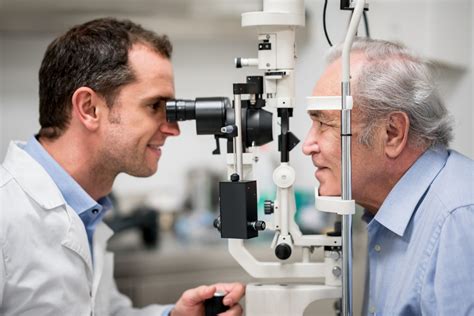Introduction

As we approach 2025, the medical field is constantly evolving, and eye care is no exception. Ophthalmologists and retina surgeons are at the forefront of these advancements, providing innovative and cutting-edge treatments for a wide range of eye conditions. This comprehensive guide will delve into the roles, responsibilities, and advancements in the fields of eye specialists and retina surgeons, empowering you with the knowledge to make informed decisions about your eye health.
Ophthalmologists: The Guardians of Eye Health
Ophthalmologists are medical doctors who specialize in comprehensive eye care, including diagnosing and treating eye diseases and performing eye surgeries. They receive extensive training in eye anatomy, physiology, and surgery.
-
Scope of Practice: Ophthalmologists provide a vast array of services, such as:
- Comprehensive eye exams
- Diagnosis and treatment of common eye conditions (e.g., cataracts, glaucoma, macular degeneration)
- Performing refractive surgeries (e.g., LASIK, PRK)
- Managing eye injuries and infections
-
Advancements in Ophthalmology: Recent advancements in ophthalmology have revolutionized eye care, including:
- Femtosecond Lasers: Precision lasers that enable minimally invasive surgery
- Intraocular Lenses (IOLs): Advanced lenses that replace the natural lens
- Optical Coherence Tomography (OCT): Non-invasive imaging technique providing detailed 3D images of the eye’s structures
Retina Surgeons: Specialists in the Eye’s Inner Structure
Retina surgeons are a subspecialty within ophthalmology, specializing in the diagnosis and surgical treatment of diseases affecting the retina, which is the light-sensitive layer at the back of the eye.
-
Scope of Practice: Retina surgeons focus on treating conditions such as:
- Age-related macular degeneration (AMD)
- Diabetic retinopathy
- Retinal detachment
- Macular holes
-
Advanced Techniques in Retina Surgery: Surgical advancements have significantly improved outcomes for retinal diseases:
- Vitrectomy: A procedure to remove the vitreous gel from the eye
- Retinal Laser Surgery: Laser treatment to stop bleeding or leakage in the retina
- Macular Surgery: Specialized procedures to repair or replace damaged parts of the macula
Collaboration and Innovation in Eye Care
Ophthalmologists and retina surgeons often work together to provide comprehensive eye care. They consult on complex cases, combining their expertise to achieve optimal outcomes.
-
Advances Through Collaboration: Joint efforts have led to numerous advancements:
- Combination Therapies: Combining laser treatment with anti-VEGF injections for AMD
- Multidisciplinary Approaches: Retina surgeons working with neurologists to treat optic nerve diseases
- Genetic Testing: Collaborating with geneticists to understand genetic factors contributing to eye conditions
Preventive Care and Eye Health
Regular eye exams are crucial for maintaining optimal eye health. Early detection and treatment of eye conditions can significantly improve outcomes.
-
Important Statistics: According to the American Academy of Ophthalmology:
- 28.5 million Americans over 40 have cataracts
- 11 million Americans have diabetic retinopathy
-
Preventive Measures: Simple steps can help preserve eye health:
- Wear protective eyewear during activities like sports or construction
- Maintain a healthy diet and exercise regularly
- Quit smoking
Tips for Choosing the Right Eye Specialist
Finding a qualified eye specialist is essential for your eye health. Consider these tips:
- Board Certification: Look for doctors certified by the American Board of Ophthalmology or American Board of Retina Specialists
- Experience and Expertise: Choose specialists with extensive experience in treating your specific condition
- Patient Reviews: Read online reviews or ask for recommendations from friends and family
- Technology and Equipment: Ensure the specialist’s office has the latest diagnostic and surgical equipment
FAQs About Eye Specialists
Q1: What is the difference between an ophthalmologist and a retina surgeon?
A: Ophthalmologists provide comprehensive eye care, while retina surgeons specialize in treating diseases affecting the retina.
Q2: How often should I have an eye exam?
A: The recommended frequency varies depending on age, risk factors, and eye health. Consult your eye doctor for personalized advice.
Q3: What are the warning signs of eye disease?
A: Unusual vision changes, pain, redness, or floaters may indicate eye disease. Seek immediate attention if you experience any of these symptoms.
Q4: Can eye diseases be prevented?
A: Some eye diseases are preventable through lifestyle choices and regular eye exams. However, certain conditions have genetic or age-related factors.
Q5: What are the latest advancements in eye surgery?
A: Femtosecond lasers, intraocular lenses, and surgical robots are revolutionizing eye surgeries by increasing precision, reducing invasiveness, and improving outcomes.
Q6: How can I find a good eye specialist?
A: Consider board certification, experience, patient reviews, and the use of advanced technology in your search.
Additional Resources
- American Academy of Ophthalmology: https://www.aao.org/
- American Society of Retina Specialists: https://www.asrs.org/
- National Eye Institute: https://www.nei.nih.gov/
Conclusion
Eye specialists and retina surgeons play a vital role in maintaining the health and functionality of our eyes. As technology and research continue to advance, these professionals will continue to innovate and provide exceptional care for our precious eyesight. By choosing the right eye specialist and engaging in preventive measures, you can preserve your eye health and enjoy a lifetime of clear vision.
















